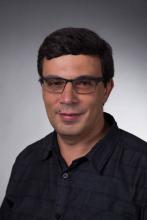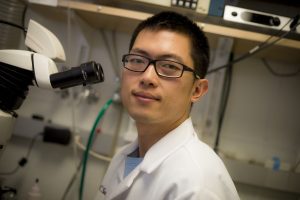Department of Computer Science
Faculty of Science
University of Manitoba
Winnipeg, Manitoba, Canada
Assistant, Associate, or Professor in Computational Cognition
Position #30384
The Department of Computer Science invites applications for one or more full-time tenured or tenure-track position at the Assistant, Associate, or Professor level, commencing July 1, 2022, or on a date mutually agreed upon. The Department seeks an emerging scholar with a commitment to excellence in teaching and research. Exceptional candidates at any level will also be considered. Candidates will complement or extend the Faculty’s strengths in machine learning, artificial intelligence, human-computer interaction, cognitive science, neuroscience and related areas. Outstanding candidates in any area of Computer Science will be considered. The successful candidate will have a Ph.D. and preferably post-doctoral experience or other distinguishing attributes in Computer Science or a related field. Duties will include undergraduate teaching in Computer Science, graduate teaching and supervision, research, including the establishment of an externally funded research program, and service-related activities. The successful candidate will have a track record of high quality scholarly research leading to peer assessed publications; will either have, or demonstrate the potential to establish, an independent, innovative, scholarly, externally fundable research program; will have demonstrated strength in or strong potential for outstanding teaching contributions; and will exhibit evidence of the ability to work in a collaborative environment. Salary and rank will be commensurate with experience and qualifications.
To enrich our Department and create role models for a diverse population of students, we particularly invite application from those who can support and enhance our diversity, including women, Indigenous Peoples, persons with disabilities and racialized persons, and those committed to a diverse environment.
The Department currently has 22 full time tenured and tenure track faculty members and 9 Instructors, and offers a full range of both undergraduate and graduate programs in Computer Science. Further information about the Department can be obtained from . Winnipeg is the largest city in the Province of Manitoba. The city has a rich cultural environment, including symphony, opera, dance, theatre, and ethnic festivals. The region provides ample opportunities for outdoor recreation in all seasons. Learn more about Winnipeg at .
The University of Manitoba is strongly committed to equity and diversity within its community and especially welcomes applications from women, racialized persons, Indigenous peoples, persons with disabilities, persons of all sexual and gender identities, and others who may contribute to the further diversification of ideas. All qualified candidates are encouraged to apply; however, Canadian citizens and permanent residents will be given priority.
If you require accommodation supports during the recruitment process, please contact UM.Accommodation@umanitoba.ca or 204-474-7195. Please note this contact information is for accommodation reasons only.
Contact information
Applications including a curriculum vitae, a description of teaching philosophy, a summary of research interests, a three page research plan and contact information for three references should be sent to (PDF files preferred). Please ensure to specify position number 30384 in the application. For further information contact the Search Committee Chair at . The closing date for receipt of applications is August 25, 2021.
Application materials, including letters of reference, will be handled in accordance with the Freedom of Information and Protection of Privacy Act. Please note that curricula vitae may be provided to participating members of the search process.
Posting end date
2021/07/27






 A CERVO research centre team demonstrates the role of light and calcium ions in neural stem cell activation in adulthood
A CERVO research centre team demonstrates the role of light and calcium ions in neural stem cell activation in adulthood